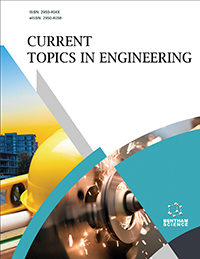Abstract
Aim: The Internal Combustion Engine (ICE) based vehicles must follow strict regulations regarding noise levels, especially in the racing competition. The noise level is typically gauged as per two different scenarios: stationary engine revolution and maximum achievable revolution. One cannot reach the required noise level by deploying just reactive or resistive muffler type separately. This research recommends a novel mix of reactive and resistive mufflers in a single package solution. For assessing the noise level, three different types of mufflers are devised and studied by means of a computational approach. The new exhaust design in this study becomes a novelty of the proposed article. In analyzing the acoustic capability of the muffler, up to now it has not been able to dampen in various frequency ranges.
Methods: In this paper, the author wants to perform a computational analysis of 3 muffler models that combine several methods of attenuation that are effective at different specific frequency ranges with different configurations in order to obtain a good combined attenuation capability in various frequency ranges. Muffler 1 uses simple reactive and dissipative techniques like standard mufflers, while muffler 2 combines the dissipative technique with a Helmholtz resonator acting as the reactive part. Muffler 3 has a multi-chamber system that uses a combination of several advanced techniques. The three mufflers are evaluated on the basis of their capacity to decrease noise level. This noise level is assessed by considering both transmission and insertion loss through mathematical calculations in the frequency range of 200 Hz to 6400 Hz with the help of pressure acoustic, frequency domain (ACPR) simulation. Apart from noise evaluation, this study also examines flow parameters to estimate the pressure drop for the proposed muffler.
Results: Comsol simulation provided both Insertion Loss (IL) and Transmission Loss (TL) with different trends. Muffler 3 had broadband response compared to its counterparts. Verifiying the finite element simulation results, electroacoustic models of each muffler were simulated using Matlab Simulink to get frequency response. Both finite element and electroacoustic modeling results have a good agreement. Pressure distribution of each model was also evaluated in terms of isosurface total pressure.
Conclusion: It is demonstrated that the proposed muffler having a multi-chamber setup provides the best performances showing both superior and consistent noise reduction throughout the 200-6400 Hz frequency range and good airflow that does not create backpressure due to noise suppression efforts.
Keywords: Vehicle muffler, noise reduction, reactive-dissipative, insertion loss, transmission loss, electro-acoustic, frequencydomain simulation.
[http://dx.doi.org/10.1177/1045389X16682844]
[http://dx.doi.org/10.1063/1.5095265]
[http://dx.doi.org/10.4271/2016-32-0039.Copyright]
[http://dx.doi.org/10.1504/IJSTRUCTE.2011.040783]
[http://dx.doi.org/10.11113/jt.v79.12263]
[http://dx.doi.org/10.1016/j.apacoust.2018.07.021]
[http://dx.doi.org/10.1121/1.4939785] [PMID: 26827024]
[http://dx.doi.org/10.1121/1.5087128] [PMID: 30710935]
[http://dx.doi.org/10.7763/IJMMM.2013.V1.45]
[http://dx.doi.org/10.5815/ijem.2015.04.01]
[http://dx.doi.org/10.14196/sjpas.v4i11.2015]
[http://dx.doi.org/10.13140/RG.2.2.10819.76329]
[http://dx.doi.org/10.1177/1687814016676767]
[http://dx.doi.org/10.2478/IJNAOE-2013-0220]
[http://dx.doi.org/10.1121/1.4906148] [PMID: 25698027]
[http://dx.doi.org/10.1177/0954407016630112]
[http://dx.doi.org/10.1016/j.apacoust.2017.10.018]
[http://dx.doi.org/10.4271/2017-01-1791.Copyright]
[http://dx.doi.org/10.1088/0964-1726/25/11/115026]



























